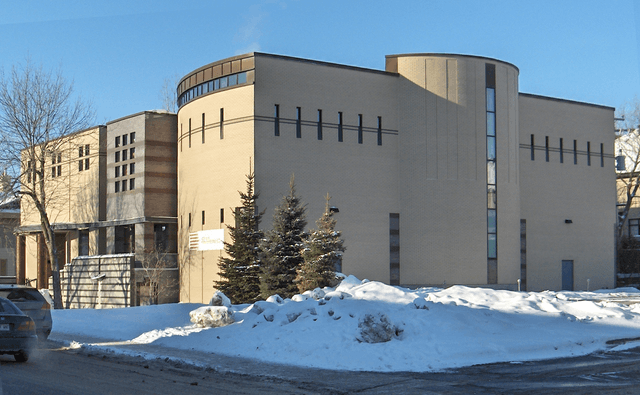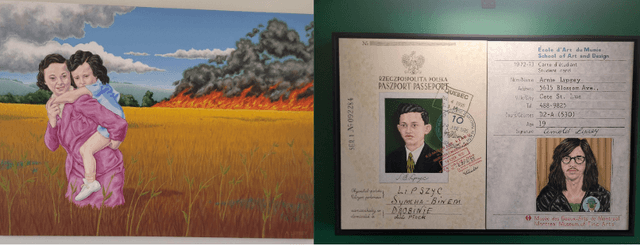The Jewish Public Library, originally founded on May 1st, 1914 and currently located on Côte-St-Catherine, has been a place of discussion, art, and learning for over 100 years. In 1984, an archives department was officially opened to professionally care for the library’s older documents and artifacts. This week, archives director Maya Pasternak spoke to Nu about various aspects of the library and archive.
The JPL was founded by and for working-class immigrants, who did not necessarily have the resources to access private studies. The library served as a place for them not only to read but also to engage with cultural programs featuring live music, poetry readings, and discussion circles.
Famously, the library has hosted talks by prominent Jewish authors and poets, such as Rachel Korn, Chaim Potok, and Mordecai Richler. According to Pasternak, “We have heard that there were no Yiddish writers passing through North America that didn't make a stop in Montreal at the Jewish Public Library.” Many of the talks given at the library were recorded and have been digitized by the Yiddish Book Center.
If one were to wander into the archive today, they would see a digitization studio, climate controlled shelving for archival material, processing room, and reference space. Additionally, there is an online catalogue of archival materials connected to other Canadian Jewish archives called the Canadian Jewish Heritage Network.The archives house over 400 collections that span across different time periods and topics, from the early labour movement to Canadian art and everywhere in between. The archive also contains a visual art collection and various artifacts such as textiles and vintage equipment. When it comes to the archives, there is something for everyone. When asked what the most popular collections were, Pasternak replied,“I think anybody you ask might give you a very different answer depending on their interest.”
JPL programming takes place in-person at the library, online, and around Montreal. Alongside maintaining and curating its collections, the JPL has several projects like the recollections with the JPL podcast and curated archival exhibits such as the one previously displayed at McGill’s Music Library about Jewish-Canadian violinist and conductor Ethel Stark. There are also programs to bring CEGEP and undergraduate students into the library and archive, so they can interact with the historical media, improving their media literacy skills.
The JPL strives to create a space that is welcoming to all people, regardless of religion or background. Pasternak made a point of communicating how the archive is a space that gives voices to those who have historically been silenced: “A community archive is a place that can subvert hegemonic narratives. It's a place where you get to hear from the individual that might be otherwise powerless.” Pasternak says that it is an archivist’s job to make community connections and that previously unheard voices are just as important if not more important than those well-documented in the public record.
The Jewish Public library continues to be a goldmine of information, history, and culture. We look forward to seeing you there!
Powered by Froala Editor






